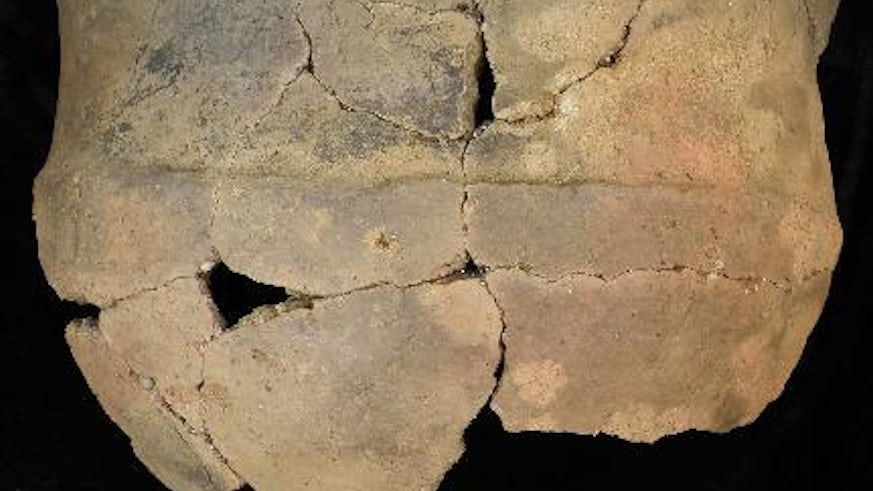From surf to turf
13 February 2014

Studies of old rubbish dumps and dirty dishes have revealed that, 6,000 years ago, ancient Britons gave up their passion for fish to begin a love affair with milk.
The research by archaeologists and chemists from Cardiff University and the University of Bristol is published in Proceedings of the Royal Society B.
The change by our ancestors from hunter-gathers to farmers is one of the most intensively researched aspects of archaeology. Now a large-scale investigation of British archaeological sites dating from around 4,600 BC to 1,400 AD has examined millions of fragments of bone and analysed over 1,000 cooking pots.
The team, led by Professor Richard Evershed of Bristol's School of Chemistry, developed new techniques in an effort to identify fish oils in the pots. Remarkably, they showed that more than 99 per cent of the earliest farmer's cooking pots lacked sea food residues.
Other clues to ancient diets lie within human bones themselves, explored by the Cardiff group led by Dr Jacqui Mulville of the School of History, Archaeology and Religion. The sea passes on a unique chemical signature to the skeletons of those eating seafood; while the early fisher folk possessed this signature it was lacking in the later farmers.
'This research brings together a whole range of techniques to tackle one of the weirdest dietary switches in human history" said Dr Mulville.
"Why people changed so swiftly from a seafood to a farming diet remains a mystery. We like to think of ourselves as a nation of fish eaters, with fish and chips as our national dish – however it seems that early farmers, even when they lived by the sea, preferred beef, mutton and milk. We used every existing technique, and developed a few new ones, to analyse shells, bones, human skeletons and pots and confirmed our early fish aversion and our ability to produce milk. It may have been that farming was easier than fishing. The project concluded that it is only with the arrival of the Vikings that fish once more become a big part of human diet,"
The findings show that early British hunters feasted on venison and wild boar and ate large quantities of sea food, including seals and shellfish. With the introduction of domestic animals some 6,000 years ago they quickly gave up wild foods and fishing was largely abandoned, and people adopted a new diet based around dairy.
Why people changed so abruptly from a seafood to farming diet remains a mystery. Professor Evershed said: "Since such a clear transition is not seen in the Baltic region, perhaps the hazardous North Atlantic waters were simply too difficult to fish effectively until new technologies arrived, making dairying the only sustainable option."
The study was funded by the Natural Environmental Research Council (NERC) with research on the Irish material funded by the European Union EU FP7 (Marie Curie Actions). It was a collaboration between the Universities of Bristol and Cardiff, the National Museum of Scotland and a number of other regional museums.